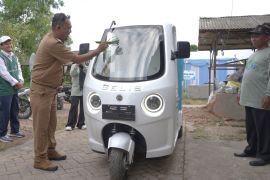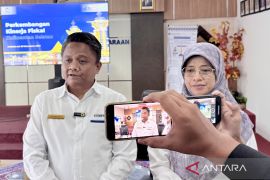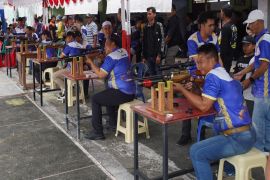Jakarta (ANTARA) - Flight frequency at Indonesia's airports plunged by 90 percent after the ban on mudik (Eid al-Fitr exodus) on May 6-17, President Director of the state-run airport operator Angkasa Pura (AP) II Muhammad Awaluddin stated.
"The first day of the imposition of the mudik ban on May 6 has run optimally at airports under the AP II management. Flight traffic at the AP II airports, including the largest Soekarno-Hatta Airport, declined by 90 percent as compared to the previous days. This indicated that people did not travel except in an urgent situation," Awaluddin noted in a press statement here on Friday.
The AP II president director remarked that some airlines confirmed to not be operating flights on May 6-17, and airports under the AP II management had only accommodated people with urgent need for travel.
Awaluddin said passengers that had already bought tickets for those days would be offered options by the airlines in the form of ticket refund, rescheduling, and rebooking or rerouting.
"Airports, under AP II, would contribute to the efforts to curb the COVID-19 transmission by implementing the mudik ban," he remarked.
On Thursday (May 6), AP II had opened the air transportation control post during Eid al-Fitr at its airports.
The COVID-19 Handling Task Force has issued Circular Number 13 of 2021 on the mudik ban to stem the transmission of COVID-19 during the Eid al-Fitr celebrations.
The ban is excluded for logistics distribution service vehicles and travelers with urgent needs for non-mudik purposes, specifically work or business trips, sick family visits, funeral visits of family members, pregnant women accompanied by one family member and childbirth purposes accompanied by a maximum of two people.
Travelers across cities, districts, provinces, and countries during the ban period must have a printed written travel permit or Exit-Entry Permit (SIKM) as a term and condition to travel with these following requirements: 1. Government employees/Civil Servants, employees of State-Owned Enterprises/Regional-Owned Enterprises, the Indonesia National Defense Force soldiers, and the Indonesian National Police members must attach a printout of a written permit letter from an Echelon II Level official and must bear a wet signature/an electronic signature and the identity of travelers;
2. Private employees must attach a printout of a written permission letter with a wet signature/electronic signature of the head of the company and the identity of travelers;
3. Informal sector workers must attach a printout of the written permission letter carrying a wet signature/an electronic signature of the head of the village and the identity of travelers;
4. Non-workers must attach a printout of the written permission letter bearing a wet-signature/an electronic signature of the head of the village and the identity of travelers.
The control post established at 19 airports under the AP II management would conduct all requisite duties to monitor and check the required documents, he stated.
"The monitoring and checking post is a joint post of the COVID-19 handling task force, airport authority, airlines, AP II, the Indonesian military and police, local governments, quarantine office, immigration office and customs office," he remarked.
The post will check the necessary documents for traveling during the mudik ban and work in coordination to ensure the implementation of health protocols.
The control post at airports are connected to the national post established in the Transportation Ministry office.
"Access to CCTV and Flight Information Display System (FIDS) at the posts in 19 airports would be connected to the Transportation Ministry to tighten monitoring," he remarked.
Related news: Govt hits brakes on 'mudik' for second year as pandemic lingers
Related news: COVID-19 task force views mudik ban as strategic decision
EDITED BY INE










